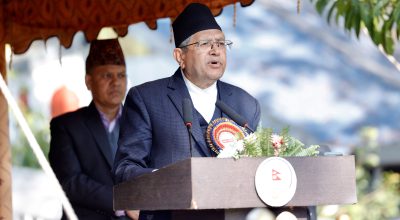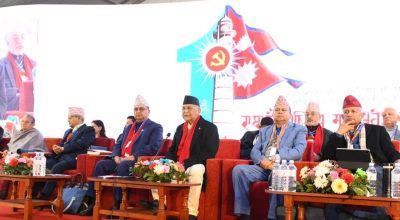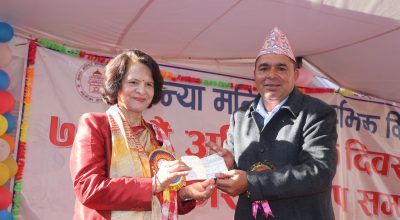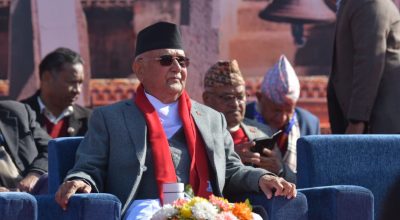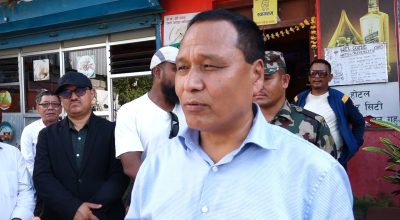
Kathmandu, May 1: The Ministry of Communications and Information Technology today held an interaction here to seek submissions from relevant sectors regarding issues to be incorporated into the upcoming policies and programmes and the budget.
Journalists, intellectuals, and representatives of journalism-related organizations were present in the programme.
At the programme, Minister for Communications and Information Technology, Rekha Sharma, said mass communications has a greater role in shaping the perception of society, and its sentiments are required to be addressed by the policies and programmes, and the budget. She said participants are encouraged to give submissions in writing as well.
The suggestions from you all are vital to add gravity to the mass communications policy ahead, the Minister said, adding that their opinions will serve as a guideline to prepare an effective policy. The Minister stressed the need to transform the advertisement policies, acts, and regulations concerning the State-owned media as per the need of time. “That’s why, media classifications and issues of inclusions are the concerns of the Ministry.”
Chairperson of the Federation of Nepali Journalists (FNJ), Bipul Pokhrel, urged the Ministry to allocate a fixed amount for health insurance facilities for media persons, a limited discount on medical care for journalists, distribution of proportional advertisement, training and career enhancement for journalists in the budget.
Rastriya Samachar Samiti (RSS) Executive Chair, Dharmendra Jha, said broader discussions are needed in issues being raised by mass media. He urged the Ministry to strengthen the news agency resourcefully and technically so that it could diversify its services linguistically and be operated round-the-clock. According to him, an inclusive newsroom and inclusive service are among the priorities of the RSS and it is advancing towards that end.
“News services in multi-languages are our effort and the budget should highlight the needs concerning the RSS,” he added.
FNJ former Chairs Kishor Nepal, Shiva Gaunle, and Mahendra Bista called for making the Mass Communications Academy policy compatible with time. They advised the Ministry to invest in the physical and enhancement of FNJ.
Press Chautari Nepal Chair Ganesh Basnet said it should be the concern of the Ministry to make the public advertisement allocation liberal and effective while Nepal Press Union Vice President, Nakul Aryal, said the Ministry must monitor about the effectiveness of mass communications.
Socialist Press Association Nepal’s Chair Bishwamani Subedi stressed the need to reach public welfare advertisements to the target groups.
Sancharika Samuha former President Nirmala Sharma said the policies and programmes should be women journalists-friendly while Chair of Federation of Nepal Indigenous Journalists (FONIJ) Gajurdhan Rai, Madhesi Journalists Society Chair Mohan Singh, Dalit Journalists Association Chair Binod Pahadi, Sancharika Samuha’s President Bimala Tumkhewa, and Working Women Journalists (WWJ ) Vice Chair Ram Kala Khadka among others called for promoting the issues of inclusion in the mass communications policy.







